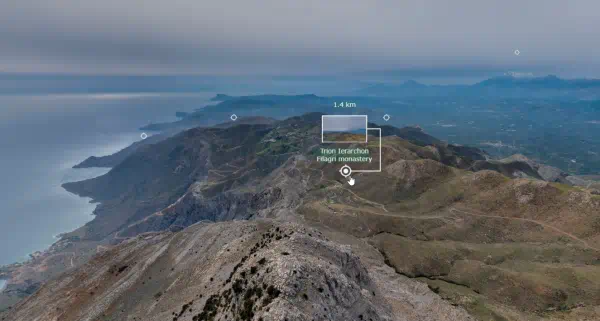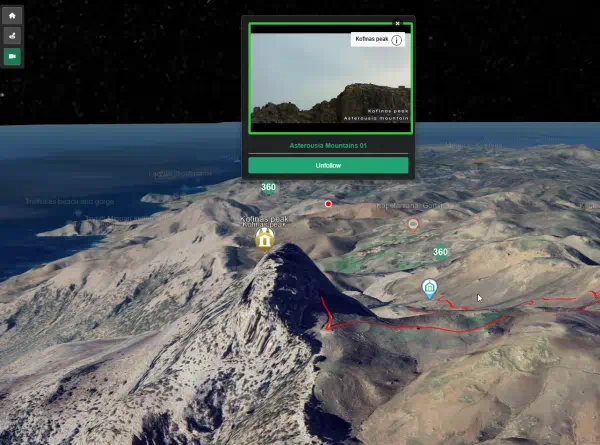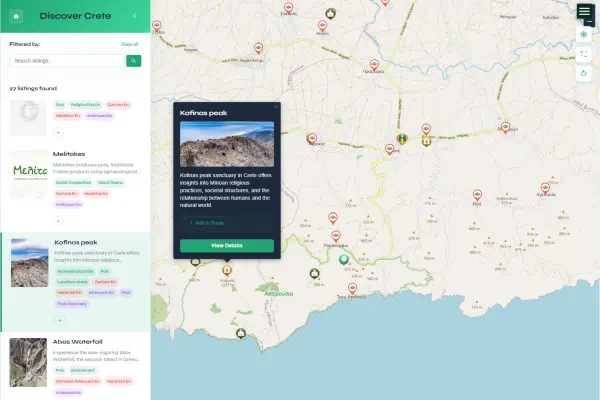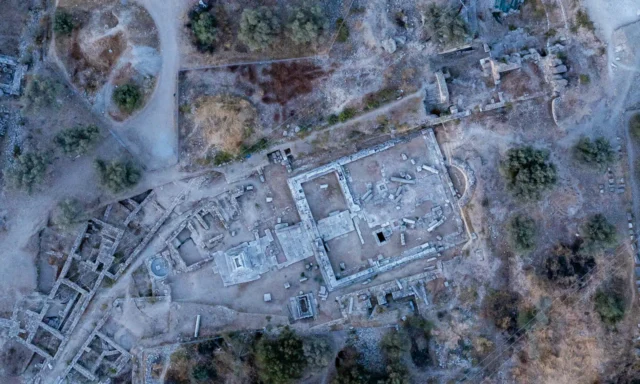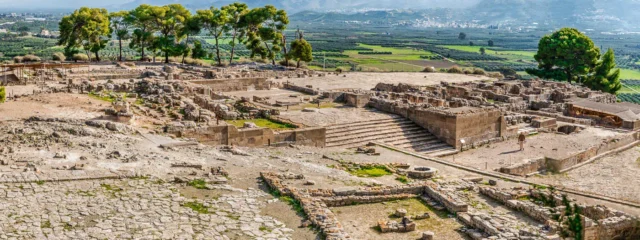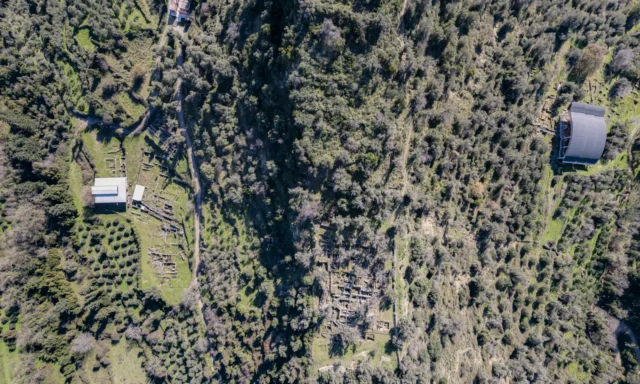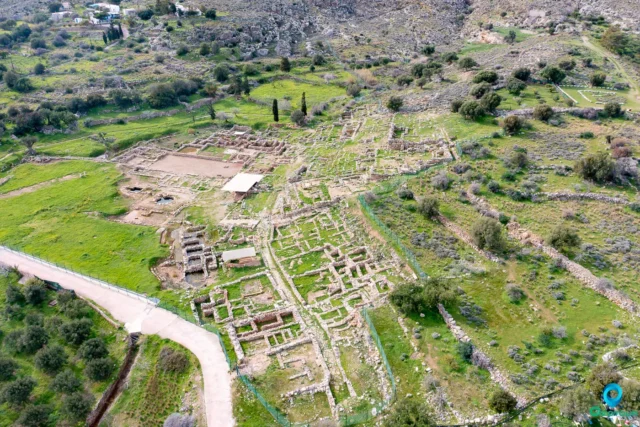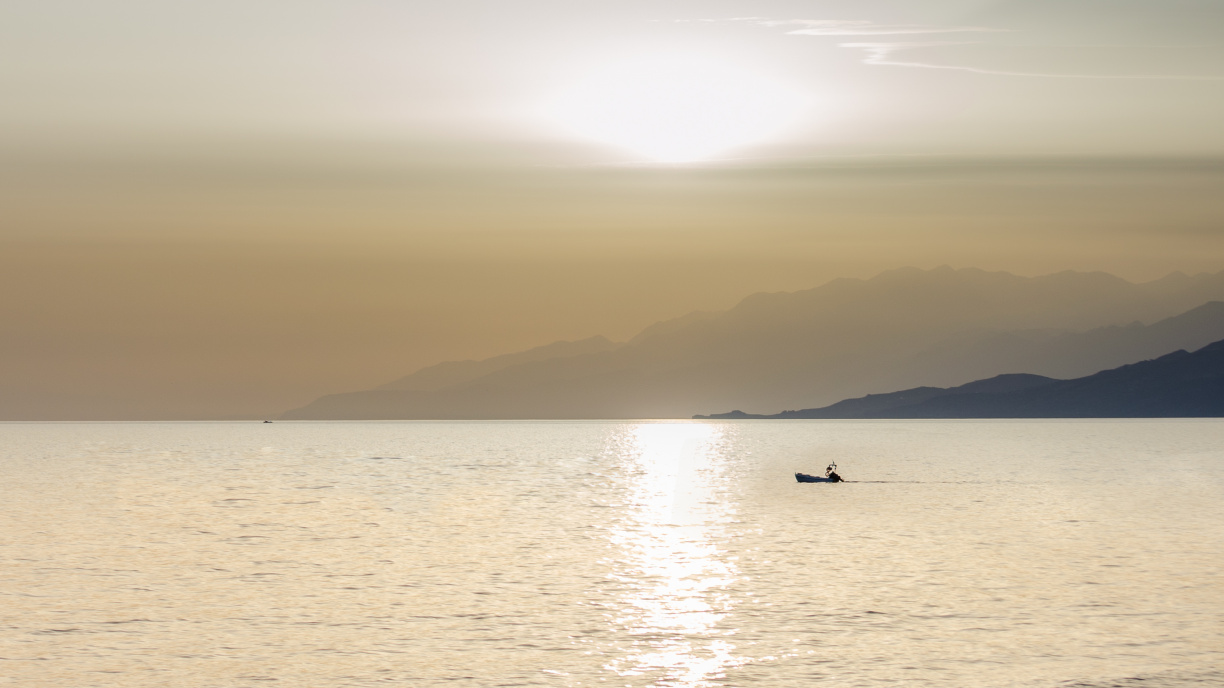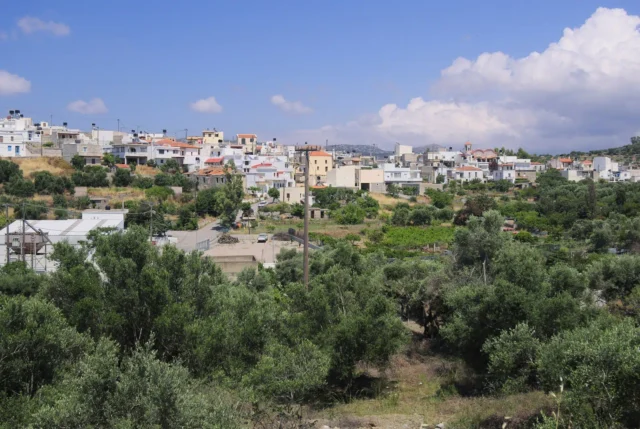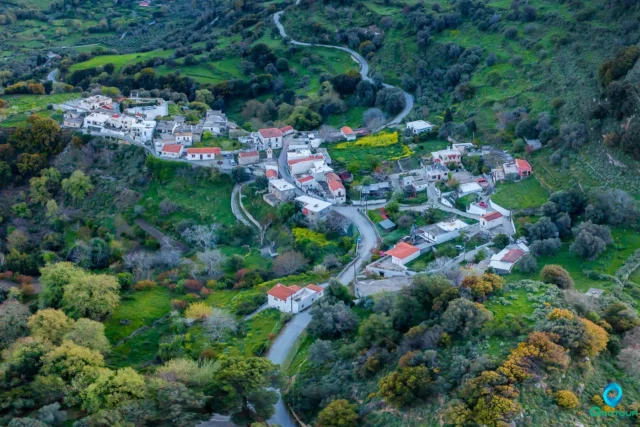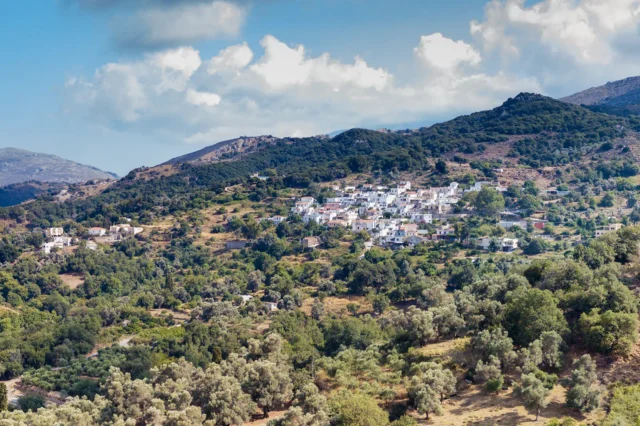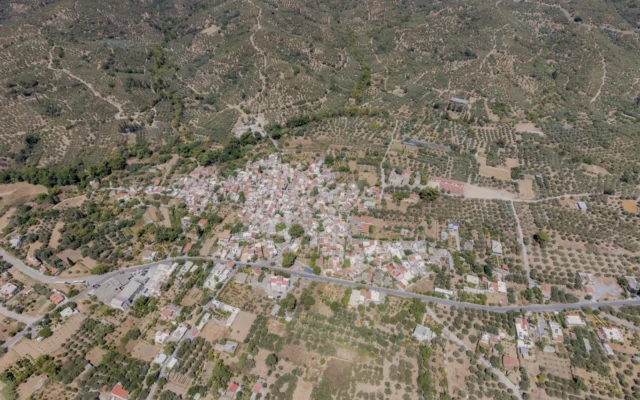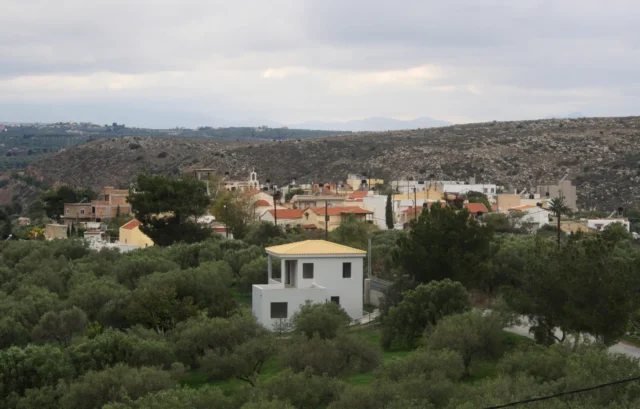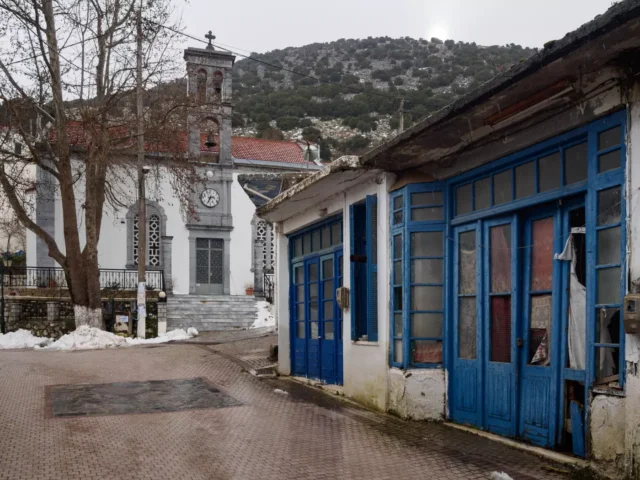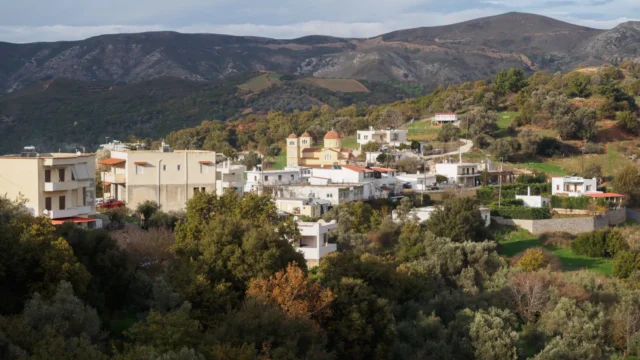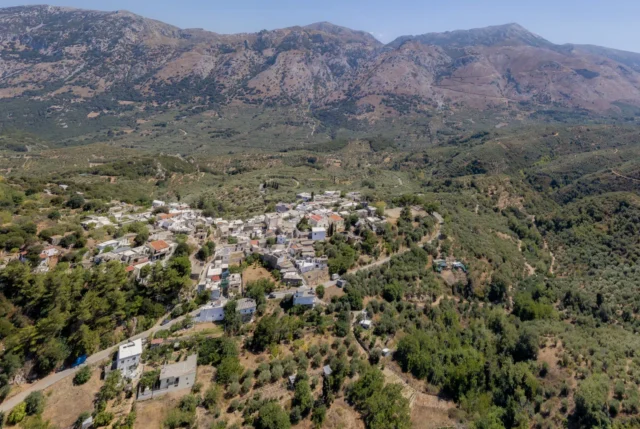748
listings found
Categories
Active filters:
Nea Roumata, Platanias
Nea Roumata is a settlement located in the Chania regional unit on the island of Crete, Greece. It belongs to the Municipality of Platanias
Nteres, Platanias
Nteres is a settlement located in the Chania regional unit on the island of Crete, Greece. It belongs to the Municipality of Platanias
Kokkini Chani, Chersonissos
Chani Tou Kokkini is a settlement located in the Heraklion regional unit on the island of Crete, Greece. It belongs to the Municipality of Chersonissos
Kalo Chorio, Chersonissos
Kalo Chorio, a semi-mountainous village in Crete, Greece, boasts a rich history dating back to the Minoan period. At an altitude of 320 meters, the village offers panoramic views and nearby gorges.
Mathia, Minoa – Pediada
Mathia is a village and the seat of the Mathia community in the Municipality of Minoa Pediada in the Heraklion Regional Unit of Crete. It belonged to the province of […]
Chersonissos, Chersonissos
Limenas Chersonissou, on Crete's northern coast, is a popular tourist destination with a long history. The ancient city of Chersonisos thrived during Minoan, Roman, and Byzantine eras, serving as a vital port and episcopal seat. The modern town, part of the Heraklion regional unit, features remnants of its past, including an aqueduct and theater ruins. Its economy relies on tourism, with numerous hotels and restaurants. While cosmopolitan, it retains aspects of traditional Cretan culture, evident in the inland village of Chersonissos and its church. Family and social connections remain important, and traditional hospitality is common.
Thronos, Amari
Situated at 540 meters on the western foothills of Psiloritis, 32 kilometers from Rethymno, the village overlooks the Amari valley. Its location is near Throniani Kefala hill, the site of the ancient city of Sybritos, inhabited since the Late Minoan II period and flourishing from Archaic to Roman times, connecting Crete's north and south coasts and minting currency. During the second Byzantine period, it possibly served as the seat of the bishop of Sybritos, influencing its name ("throne"). Historical mentions include Barozzi (1577), Venetian censuses (1583, 1630), and various Egyptian and Greek censuses tracking population changes from 76 inhabitants in 1900 to 65 in 2011. Today, it retains traditional charm with some tourist facilities and belongs to the Municipality of Amari.
Kalogeros, Amari
Kalogeros is a settlement located in the Rethymno regional unit on the island of Crete, Greece. It belongs to the Municipality of Amari.
Stalida, Chersonissos
Stalida is a settlement located in the Heraklion regional unit on the island of Crete, Greece. It belongs to the Municipality of Chersonissos
Apostoloi, Amari
Apostoloi, located 30km southeast of Rethymno, Crete, is a village with historical records dating to 1577, noted by Francesco Barozzi. It has demographic records from Venetian and Ottoman censuses, including a 1583 count of 175 inhabitants and later Ottoman designations. The village, part of the Amari region at 500 meters elevation, features churches like Agios Nikolaos and Agios Spyridonas, reflecting its cultural heritage. A primary school, established in 1916, highlights its educational commitment. With a population of 162, Apostoloi maintains its rural identity, showcasing traditional Cretan architecture and enduring community traditions.
Avdou, Chersonissos
Avdou is a settlement located in the Heraklion regional unit on the island of Crete, Greece. It belongs to the Municipality of Chersonissos
Galifa, Chersonissos
Galifa is a settlement located in the Heraklion regional unit on the island of Crete, Greece. It belongs to the Municipality of Chersonissos
Psychro, Lasithi plateau
Psychro is a settlement located in the Lasithi regional unit on the island of Crete, Greece. It belongs to the Municipality of Lasithi plateau
Voleones, Amari
Voleones is a settlement located in the Rethymno regional unit on the island of Crete, Greece. It belongs to the Municipality of Amari
Agia Foteini, Amari
Agia Foteini, a village in Crete's Amari Valley, 33km southeast of Rethymno, was established in the 1950s at 500m altitude, on the site of ancient Syvritos.
Excavations reveal Hellenistic and Roman era findings. The village, recognized in 1961, serves as the administrative seat of Amari Municipality since 2011, housing public services. Population growth is recorded from 1961, reflecting its development as a local hub. Its location near Apostoloi and ancient Syvritos links its recent history to the area's long past.
Kastamonitsa, Minoa – Pediada
Situated 42 kilometers southeast of Heraklion on the western slopes of the Dikti mountains at 520 meters, this village holds a strategic position controlling access to the Lasithi Plateau. First inhabited after 961 AD, it was evacuated by Venetians in 1364 due to rebellions, repopulating after 1514. It appeared in the 1834 census (35 families) and saw significant Ottoman-era conflicts, including the 1823 battles and the 1841 Battle of Mesada. Key landmarks include the Venetian-era Church of the Dormition of the Theotokos, the 1890 Church of Agia Kyriaki, Roman aqueduct remnants, and Mesada with the Agios Georgios church. The village was active in WWII Cretan resistance. Population declined from 516 (2001) to 220 (2021). It remains active with agriculture and some tourism.
Askoi, Minoa – Pediada
Askoi is a settlement located in the Heraklion regional unit on the island of Crete, Greece. It belongs to the Municipality of Minoa - Pediada
Zoforoi, Minoa – Pediada
Zoforoi is a settlement located in the Heraklion regional unit on the island of Crete, Greece. It belongs to the Municipality of Minoa - Pediada
Krasi, Chersonissos
Krasi is a settlement located in the Heraklion regional unit on the island of Crete, Greece. It belongs to the Municipality of Chersonissos
Potamies, Chersonissos
Potamies (Ποταμιές) is a historic Cretan village in Chersonissos, near Heraklion. Mentioned in the 1583 Castrofylakas census, it features the abandoned Byzantine monastery of Panagia Gouverniotissa, with preserved frescoes, and the 15th-century church of the Transfiguration of the Savior. The village sits on the Aposelemis River, amid olive groves and lush vegetation. Its history includes Venetian influence, with a notable aqueduct supplying ancient Chersonissos. Potamies offers traditional Cretan cuisine and hospitality, with cultural events held at the monastery. The nearby Aposelemis Dam and the Dikti Natura 2000 area add to its appeal. The village's population has fluctuated over time, from 153 in 1583 to 348 in 2021.

